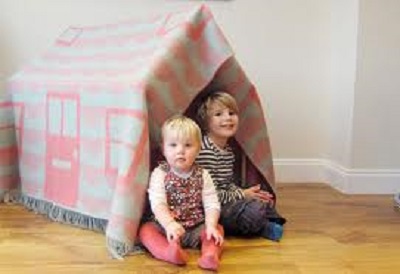
What are the causes and is there a ‘cure’ of Autism?
We look at the possible causes of autism and some thoughts on the concept of a ‘cure’. Professionals declare that it is both genetic and environmental. In other words, it’s passed down from generation to generation as well as the various environmental pollutants- food allergies, water, air, soil, etc. In my practice, I have discovered many of the causes and cures because I work with young adults.
* The causes of autism are still being investigated. The National Autistic Society (NAS) welcomes research into all areas which may further our understanding of autism.
* The genetics of autism spectrum disorders
Bhismadev Chakrabarti, PhD, School of Psychology and Clinical Language Sciences, University of Reading Autism Research Centre, University of Cambridge, September 2009.
* Position statement: MMR vaccine and autism
The National Autistic Society’s statement on autism and the MMR vaccine
Is there a ‘cure’?
There is no known ‘cure’ for autism. This does not mean, however, that nothing can be done for a person with autism. This page has been written primarily for parents of newly diagnosed children, but will be of interest to anyone who wants to know about autism and possible ‘cures’. Parents of newly-diagnosed children, however, will often ask, ‘Is there a cure?’. There is currently no known ‘cure’ for autism. This does not mean that nothing can be done to help a person with autism.
Our understanding of autism has grown tremendously since it was first identified in the 1940s, and as we learn more about the condition, more interventions will undoubtedly become available. Because autism is a ‘spectrum’ disorder it affects different people in different ways. It is therefore very difficult to generalize about how a person with autism will develop over time. It is particularly important to realize that an intervention which works well with one individual may not be appropriate or effective with another. The symptoms and characteristics of autism can present themselves in a wide variety of combinations. Both children and adults can exhibit any combination of autistic behaviors in varying degrees of severity. This means that two children, both with the same diagnosis, can act very differently from one another and have varying skills.
Contrary to what many people imagine, however, some children and adults with autism may make eye contact, show affection, smile and laugh, and demonstrate a variety of other emotions. Some go on to hold down responsible employment, have relationships with others, marry and raise children. Like anyone else, people with autism respond to their environment in both positive and negative ways and change as they mature. Many people with autism have an ability to focus on detail and may have good powers of concentration on a single activity provided it is of interest to them. This means they can often achieve a very high level of skill in a particular area. Children with autism can be especially good at learning facts, skills and talents. People with autism tend to be very honest and, if communication skills develop, will report things very accurately and openly.
Interventions
Most interventions are aimed at helping children with autism. While children with autism are not ‘curable’ they can be helped, especially if their autism is diagnosed early in life. Various types of early intervention for autism and other developmental disorders exist and may be available to you locally. These include:
Child Development Centers
Portage Services (usually accessed via the local authority’s education department)
Playgroups, including those run by the Pre-school Learning Alliance
Nursery classes, general or resourced for special needs (run by the local education authority)
Orngaizations especially local and national
Some thoughts on ‘cures’
There is a growing movement among activist adults with autism and Asperger syndrome who don’t think in terms of ‘curing’ a disorder but instead of celebrating difference. Although this page has been written primarily for the parents of newly-diagnosed children, it may be helpful to note the viewpoints of some adults with autism spectrum disorders, who don’t think in terms of ‘curing’ a disorder but instead of celebrating difference. (In fact, people with a desire to cure autism are sometimes known by adults on the spectrum as ‘curebies’.)
Autism Friends Network
“We know that autism is not a disease, and we oppose any attempts to ‘cure’ someone of an autism spectrum condition, or any attempts to make them ‘normal’ against their will.”
The Autistic Liberation Front
Autistic Liberation Front fights the ‘oppressors searching for a cure’
By David Harrison and Tony Freinberg.
autistics.org
“Resources by and for persons on the autism spectrum”.
Don’t mourn for us
by Jim Sinclair. Originally published in the Autism Network International newsletter, Our voice, Volume 1, Number 3, 1993.
Institute for the Study of the Neurologically Typical
Includes thoughts on treatment for neurotypicals (people who do not have an autism spectrum disorder [ASD]) and “What to do if you suspect your child has NT”. A humorous site born of outrage at attitudes to ASDs.
neurodiversity.org
“Honouring the diversity of human wiring” This link takes you straight to their extensive collection of thoughts on ‘curing’ autism.
Sociological and cultural aspects of autism
An in-depth article about autistic culture in Wikipedia.
Is autism really a disorder?
Luke Beardon, Senior Lecturer in Autism, The Autism Centre, Sheffield Hallam University
